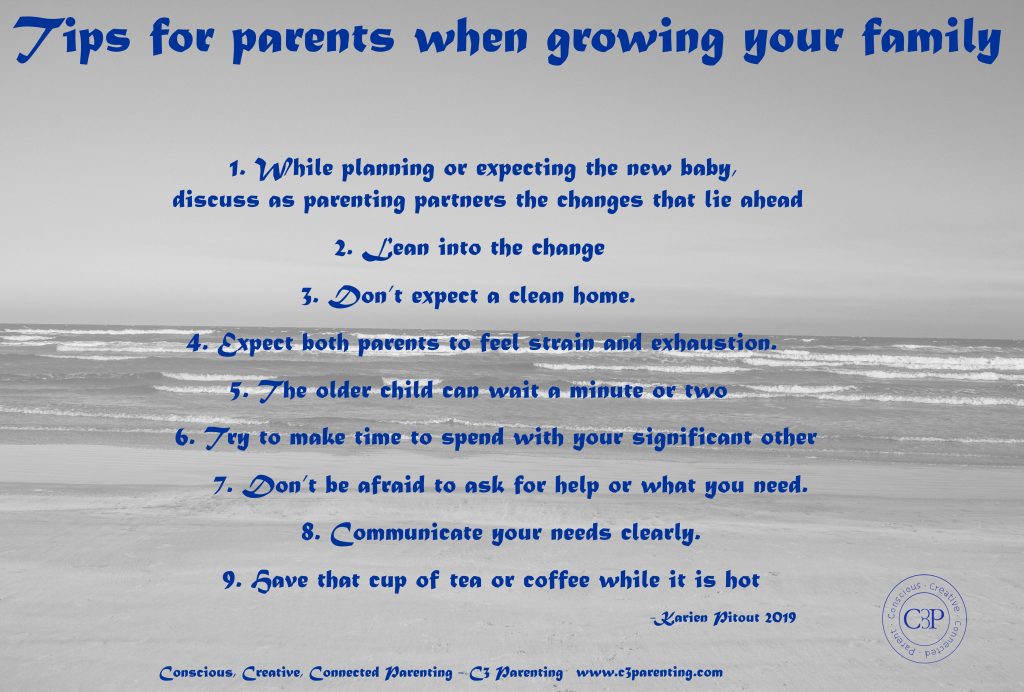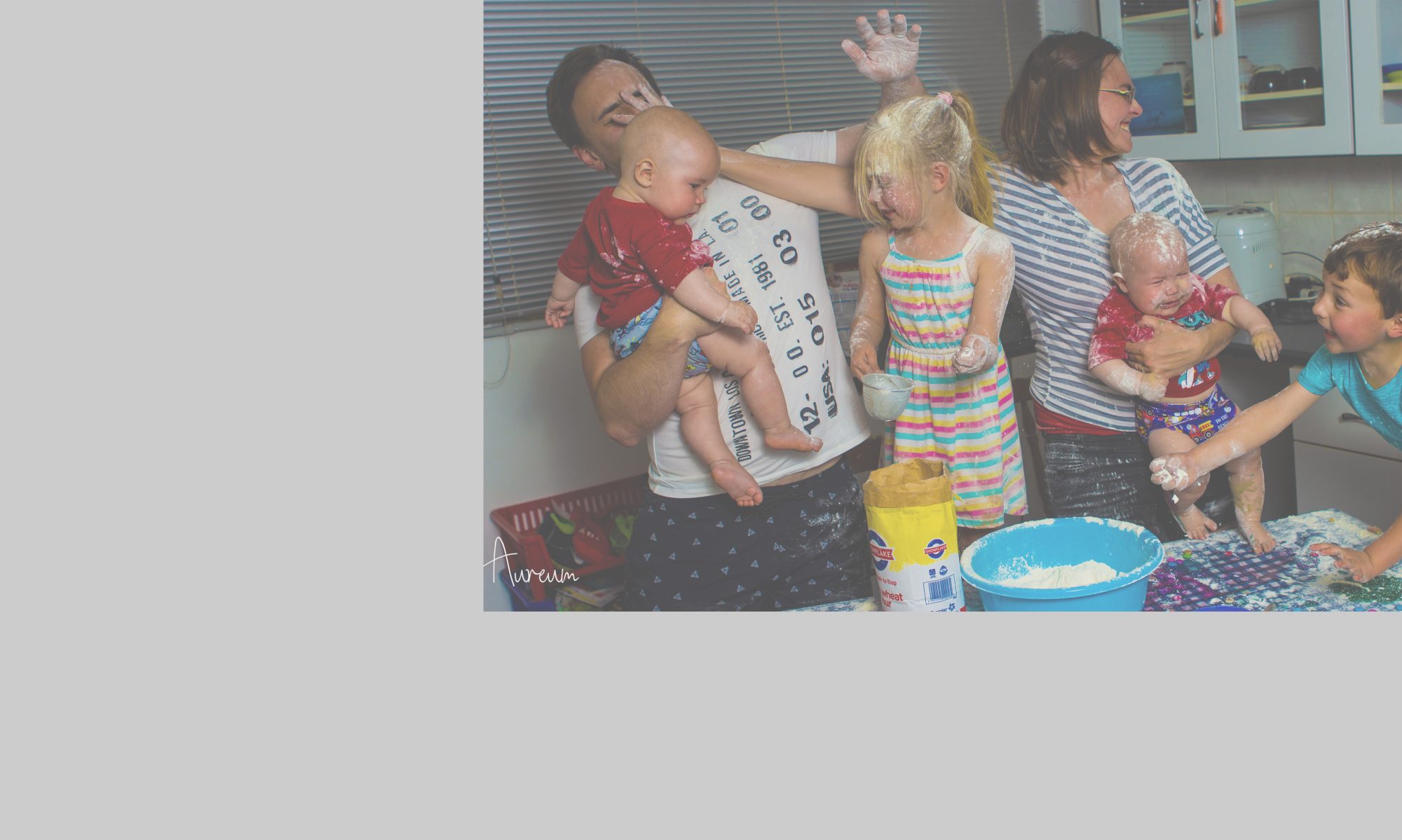Kids need support when adjusting to change, so do parents, especially when we add another sibling to the family. In the previous blog (see here) we have discussed why. How do we ease the adjustment for us as parents?

We will discuss a few tips and pointers in this blog regarding the adjustment period.
First things first
If the only thing that you as a parent take from this is to remember that it takes a long time to adjust, that all emotions are valid and every person has their own way of dealing within their own time span of how long it will take them to adjust, then it becomes easier to manage our own expectations of this adjustment period.
Adjusting as parents:
Adding a new member to the family is tough on any relationship and often parents shift into survival mode without realising it. The reason is that adding a child to the family creates stress, and a whole new level of stress at that. As parents we often doubt ourselves, generally more often than not. We have to contend with yesteryears’ ideas of raising children and new research that gets released almost daily. From food to development, to emotional and societal health. It becomes a smorgasbord of information and it can become overwhelming. Here is the truth though, parents become ‘parenting fit’. You will grow with your kids. You will make mistakes with your kids and you will do things differently as each child joins the ranks. Don’t be afraid to make a mistake, learn from it, correct it and move on.
Very often parenting support focuses on the child, and what to expect from your child, we will go into detail regarding that in a different blog. For now we will look at what to expect from our parenting journey during this adjustment period.
One of the key factors is that the jump from one child to a second is usually overwhelming and very difficult. The most obvious contributing factor of this is that the older child is usually under the age of 7, thus still in an age group where their primary needs are being fulfilled by their parents or caregivers. Just because we added a sibling, does not mean their needs have changed or that they will need us any less. There is an anecdotal belief that after adding a second child, adding more children to the mix is not as big an adjustment as going from one to two. However, it is undeniable that adding any number of children to a family creates its own emotional stress and an adjustment period where every single member of the family needs time to acclimatise to the new normal.
This is a learning curve and a steep one at that, for all parties involved. Some of the things we hoped other parents would have told us when we made our family bigger were:
- It is okay to feel overwhelmed, you will feel it often.
- What is fair isn’t always equal.
- Feeling jealous is normal for parents and children during this time – it is tough and as much as you love the new addition, you may miss your freedom or even perceive the other to have more freedom than yourself.
- Tomorrow really is another day.
- Parenting guilt comes in big waves, if it hits, don’t let it drown you.
- It is okay to wonder if you have made a mistake on the hard days.
- Not all of the days will be hard, not all of the days will be good. Having average days is normal.
- Your kid’s personalities may clash and it is okay if they do.
- Your older child may express severe negative feelings or behaviour towards their younger baby sibling – It is normal and to be expected. The baby is the source of change and their discomfort with adjustment. Them stating their negative feelings about the new sibling is okay and to be expected. It does not mean that they don’t love them, they are just not happy about the change in that particular moment.
Tips for adjusting as parents:
- While planning or expecting the new baby, discuss as parenting partners the changes that lie ahead
Discuss the adjustment to parenting roles and expectations, the roles will shift and change due to the need to meet all the children’s and the parent’s needs. The secondary parent will have to become more actively involved with taking care of the children as well as the running of the home. This includes cooking and cleaning, feeding and bathing.
If you are a single parent, look at the above and work out a rough plan as to how you are going to a your expectations of how your home will look, how your day to day is likely to go. What things are vitally important to not only your own survival, but your own peace of mind? Can you get by for a while if you only wash dishes once or twice a week, if you can, how will you manage the dirty dishes so that it does not make you feel uncomfortable or anxious? Can you move some things around in your kitchen so that the older kids can help themselves to healthy snacks without needing you to help them? How can you adjust your home to accommodate self-reliance if needs be for your older kids? It is often the simple physical changes in the home that can make the adjustment easier and open up time to give the attention to the older kids that they so desperately need during this adjustment period.
Basically create a blueprint for the roles and responsibilities, it is not set in stone as each child is different and you need space to adjust your blueprint according to how the family will function as a unit, but having something to work from eases the conversations that needs to happen during this period.
2. Lean into the change
Parents and children alike experience “brain fog” or stress during this adjustment period, your child may show signs of regression i.e. was sleeping through or no longer wet the bed to not sleeping through anymore and wetting the bed again. It is normal for them to react this way and it will take time for them to master the skills again as the stress they experience starts to dissipate. Be honest about your own energy levels and plan your day to day according to it, ease into this and don’t be afraid to say no to an invite or even decline an outing when you are not coping.
3. Don’t expect a clean home.
While you are busy with your new addition to the family, your older kids may get up to mischief and make a mess in another room, try to minimise their access to things that cannot be cleaned easily and maximise access to things that can be cleaned easily.
Don’t scream or fight about the mess, ask them calmly to help you clean up. This is tough as we are already tired and stressed and it usually happens when we are at the end of our rope.
Kids are often mirrors of our emotional well-being. So when we have had enough of the stress, they have had enough and act out, physically showing us what we and they are feeling emotionally. Try to remember this and find grace in your heart and mind for yourself and for them.
4. Expect both parents to feel strain and exhaustion.
Rest opportunities are usually more limited when having more than one child as you don’t have an extra pair of hands to help ease the load. Take things slowly and day by day.
5. The older child can wait a minute or two
When they have to wait, expect whining and maybe even some anger. It is normal for them as they are used to very responsive parents and now they are experiencing the opposite. Breathe and remember that as much as whining can drive anyone dilly, they are whining because they are not used to having to share you and they do feel left out.
6. Try to make time to spend with your significant other.
In the first two years it may not be just the two of you spending time together, but even just lying on the bed next to each other with the children all over you, you still get time to connect.
7 .Don’t be afraid to ask for help or what you need
Even when a friend comes to visit and you need help with the dishes, ask them to help. It takes a village to raise a child, or so the saying goes. It does take a village to support a family and support often comes in overalls and hands in soapy water.
8. Communicate your needs clearly
Have grace with yourself and your partner. You are both going to make mistakes and sometimes big ones during this period. No person is a mind reader and we all have different ideas of what needs to take priority in the moment, so talk things through. Be open to suggestions from your partner and be willing to re-evaluate your blue print when necessary.
9. Have that cup of tea or coffee while it is hot.
Allow self-care to happen, initially self-care will probably be with a baby on your chest, while you take a long bath. Take time to relax and recharge. It lifts the brain fog and enables you to parent both kids with a more rational mind. = This one takes practice and should happen daily to get used to it and develop the habit even if it is just 5 minutes.
Please feel free to comment below or follow us on Facebook. Look out for our next blog on this vital topic, where we will discuss tips to help our kids adjust to the change.
3,283 total views, 1 views today

